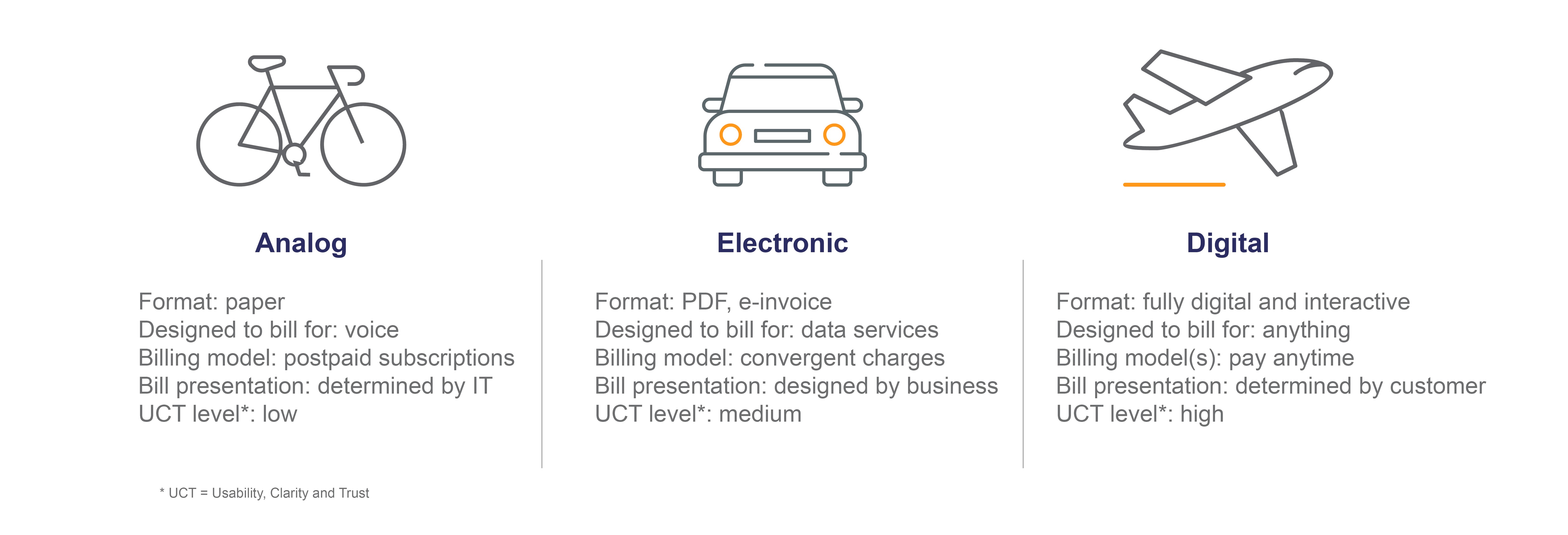Will digitalization obsolete the bill?
11 August 2021
|
Rob Vos
By 2030 digitalization will have transformed our home lives as well as whole industries. But with 6G on the horizon and exciting new technologies at our fingertips will we still need the humble bill? Business Consultant Rob Vos investigates.
In the digital era, do we still need a bill?
On what has become known as ‘Digital Day’ 2021, the European Commission set out its digital vision for 2030. Its aim is for three-quarters of European businesses to be utilizing Cloud, Big Data and AI by 2030. The EC believes this will enable the continent to double the number of privately-held companies valued at over billion and ensure 90% of SMEs have at least basic digitalization. But in the AI-enabled, Terabit powered, Virtual Reality future that the EC envisages, will we still need something as mundane as the bill?
The short answer is yes. Of course, there will always be the need for a periodic compilation of products and services used for legal and taxation purposes. Furthermore, customers should always be notified that this information is available, and should be able to process, check and dive more deeply into it. If they don’t understand it, or think it’s wrong, they should also be able to query it.
The question really isn’t will there be a bill, but do we require all the complex and expensive bill processes of today, and is the current bill sufficient to meet our future needs?
The EC clearly believes something has to change, having mandated B2G e-invoicing from April 2020 (Directive 2014/55/EC). Other European countries such as the UK and Russia, along with countries across LATAM (such as Brazil, Ecuador, Mexico, and Paraguay) and Asia (including Australia, China, India, The Philippines, South Korea, and Vietnam) are all at various stages of implementing e-invoicing.
The reason why such countries are committed to at least an electronic version of the bill is so that governments can combat tax evasion and help companies reduce bill processing costs. The high cost of processing bills is, in fact, a powerful indication that the traditional bill is well and truly past its expiration date.
The future bill is smarter, fully digital and more customer-centric
By 2030 the monthly paper-based bill will be a distant memory, its demise saving many trees in the process! The bill will even have evolved beyond today’s static electronic format into a fully digital and interactive form that is presented and processed via the customer’s preferred channel(s) and platform(s). Technologies such as blockchain, smart contracts and AI will likely be utilized in this future bill, because they drive usability, clarity and trust. Blockchain, in particular, is likely to have a critical role, because it readily lends itself to establishing a trusted, transparent and traceable representation of everything that’s happened. Likewise, smarter, more intuitive and personalized design will make the future bill easier to use, less stressful for customers, and more interesting.
Much progress has been made in billing. But we now need to be even more ambitious if we’re to keep up with all the innovation that’s headed our way in the next few years and meet the rapidly evolving needs of our customers. This means offering more features, fulfilling new functions and, most importantly, support a differentiating billing experience.
The bill might be a dinosaur left over from the telecoms industry’s analog voice-call based past, but smart bills are already evolving digital features to support a wider range of services and better address new customer expectations and commercial imperatives. Future bills will be even more customer centric, optimize usability, clarity and trust, and support innovation. Will this fully digital presentation of commercial information continue to be called a bill? Maybe not. The jury’s still out on that one. But whatever we end up calling it, the future bill will continue to be the key commercial interface between customers and CSPs for many years to come.
At Calvi we turn your bill into an asset and help you position for what’s coming tomorrow. To find out more about the future of the bill, or to talk to our Business Consultants, please contact us!






